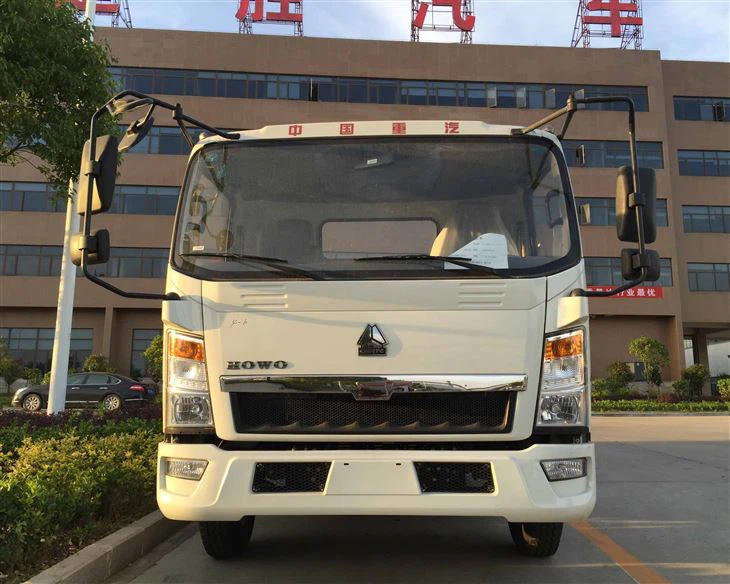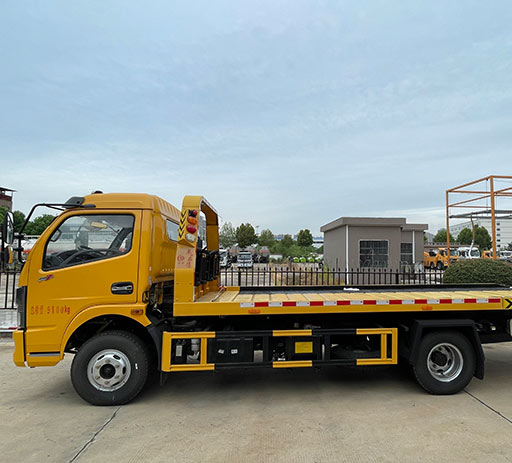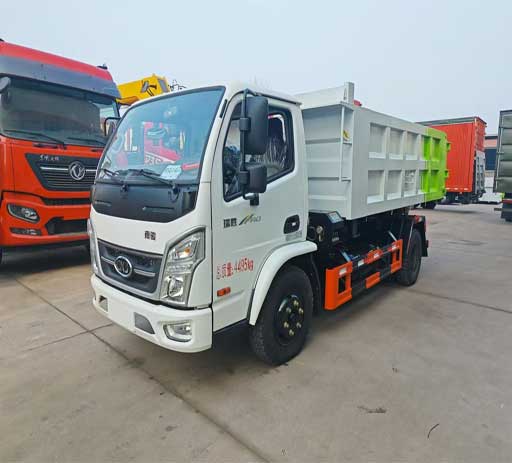Understanding Electric Powered Cargo Trucks: The Future of Transportation

Introduction
The world of logistics and transportation is undergoing a significant transformation, driven by technological advancements and an increasing focus on sustainability. Electric powered cargo trucks are at the forefront of this change, offering a cleaner, cost-effective, and technologically advanced solution for freight movement. As businesses and governments transition towards greener options, understanding the benefits and challenges of electric powered cargo trucks is essential. In this comprehensive guide, we will explore various aspects of electric powered cargo trucks, their operation, benefits, current models, and future developments in the industry.
What is an Electric Powered Cargo Truck?
Electric powered cargo trucks are commercial vehicles that use electric motors for propulsion instead of traditional internal combustion engines. These trucks are designed to transport goods over short and long distances, utilizing rechargeable battery systems that can be charged via various charging infrastructure. The shift towards electric trucks aims to reduce greenhouse gas emissions, minimize dependence on fossil fuels, and improve urban air quality.
How Electric Cargo Trucks Work
Electric powered cargo trucks utilize electric motors that can provide instant torque, allowing for efficient acceleration and movement. The trucks rely on large lithium-ion battery packs to store energy, which can be charged at fixed charging stations or through wireless charging systems. Regenerative braking systems are commonly integrated, allowing the vehicle to recover energy during braking, further enhancing efficiency.
Components of Electric Powered Cargo Trucks
- Electric Motor: Provides the power for propulsion.
- Battery Pack: Stores and supplies energy for the motor.
- Power Electronics: Manages the flow of energy between the battery and the motor.
- Chassis: Provides the structure for the truck and supports other components.
- Regenerative Braking System: Helps to recover energy during braking.
The Benefits of Electric Powered Cargo Trucks
Electric powered cargo trucks come with numerous advantages that make them an appealing choice for fleet operators. Below are some of the key benefits:
1. Environmental Impact
Electric trucks significantly reduce greenhouse gas emissions compared to their diesel counterparts. As the push for eco-friendly logistics intensifies, companies can improve their sustainability posture by integrating electric trucks into their fleets.
2. Lower Operating Costs
Operating costs for electric trucks tend to be lower due to lower fuel costs and reduced maintenance needs. Electric vehicles have fewer moving parts that are subject to wear and tear, leading to reduced maintenance expenses.
3. Quiet Operation
Electric powered cargo trucks operate significantly quieter than traditional diesel trucks, reducing noise pollution in urban areas. This makes them particularly suitable for deliveries in residential neighborhoods where noise restrictions may apply.
4. Performance and Efficiency
Electric motors provide instant torque, enabling quicker acceleration and better overall performance. With proper charging infrastructure, electric trucks can also operate efficiently over longer distances.
5. Government Incentives
Many governments around the world are offering tax incentives, grants, and rebates to companies that invest in electric trucks. These financial benefits can offset the initial purchase price, making the transition more attractive.
Current Models of Electric Powered Cargo Trucks
As the market for electric cargo trucks grows, several manufacturers have developed models to suit various logistics and transportation needs. Below is a brief overview of some of the current offerings:
1. Tesla Cybertruck
The Tesla Cybertruck is known for its futuristic design and durability. It is suitable for light to medium-duty applications, gearing towards customer delivery services.
2. Freightliner eCascadia
Freightliner has introduced the eCascadia, a fully electric version of its popular Cascadia model. Designed for heavy-duty shipping, it delivers impressive range and performance metrics, making it ideal for urban freight logistics.
3. Rivian R1T
Rivian’s R1T is an electric pickup truck suitable for smaller delivery needs and is designed with utility and sustainability in mind.
4. BYD 8TT
BYD’s electric truck model, the 8TT, features a robust design and is currently operating in multiple delivery fleets across North America.
Challenges Facing Electric Powered Cargo Trucks

Despite their advantages, electric powered cargo trucks face several challenges that need addressing:
1. Limited Range
The range of electric trucks remains a significant concern, particularly for long-haul operations. While range is improving, it may not yet be sufficient for all transportation needs.
2. Charging Infrastructure
The current state of charging infrastructure poses a challenge. Fleets may need to develop charging stations at their depots, which can involve significant investment.
3. Initial Investment Costs
While operating costs may be low, the initial purchase price of electric trucks can be substantially higher than traditional diesel vehicles, posing a barrier for some companies.
4. Battery Lifecycle

Battery degradation over time and the eventual need for battery replacement can affect long-term costs and performance expectations.
Future Developments in Electric Powered Cargo Trucks
As technology evolves and the demand for sustainable transport solutions increases, several trends are shaping the future of electric cargo trucks:
1. Improved Battery Technologies
Research into new battery technologies, including solid-state batteries, aims to improve energy density and reduce charging times, extending the range of electric trucks.
2. Automated and Autonomous Electric Trucks
Advancements in automation could lead to the development of autonomous electric trucks that reduce the need for human intervention, optimizing logistics and improving safety.
3. Enhanced Charging Solutions
4. Integration with Smart Technologies
The integration of electric trucks with smart logistics systems using IoT (Internet of Things) will enhance tracking, routing, and efficiency, leading to operational improvements.
Practical Examples and Tips for Adopting Electric Powered Cargo Trucks
For businesses considering the transition to electric cargo trucks, the following practical examples and tips can provide guidance:
1. Conduct an Operational Assessment
Assess your current logistics operations, including routes, load sizes, and delivery schedules. This information will help determine whether electric trucks are feasible for your needs.
2. Start with a Pilot Program
Consider running a pilot program with a small fleet of electric trucks to observe performance, customer feedback, and overall efficacy before scaling up.
3. Collaborate with Charging Network Providers
Establish partnerships with charging infrastructure providers to ensure your fleet has access to fast and reliable charging solutions.
4. Leverage Government Incentives
Research available state and federal incentives for electric vehicles, including tax credits and rebates, to help mitigate initial investment costs.
FAQ Section
1. What is the average range of electric powered cargo trucks?
The average range can vary significantly based on the model, but many electric cargo trucks are currently achieving ranges of 100 to 300 miles per charge.
2. How do charging times for electric trucks compare to refueling diesel trucks?
While refueling a diesel truck typically takes only a few minutes, charging an electric truck can take anywhere from 30 minutes at fast chargers to several hours at standard charging stations.
3. Are electric cargo trucks suitable for long-distance travel?
Current electric trucks may not be ideal for long-distance travel; however, advancements in battery technology and charging infrastructure are making long-haul electric trucking increasingly feasible.
4. How does the maintenance of electric trucks compare to diesel trucks?
Electric trucks generally require less maintenance than diesel trucks due to their simpler mechanical systems. They do not require oil changes or engine maintenance, leading to reduced overall maintenance costs.
5. What incentives exist for businesses transitioning to electric trucks?

Many regions offer tax rebates, grants, and other financial incentives to companies that purchase electric trucks or develop charging infrastructure.
6. Can electric trucks operate in extreme weather conditions?
Electric trucks can operate in a variety of weather conditions; however, extreme temperatures may affect battery performance and range.
